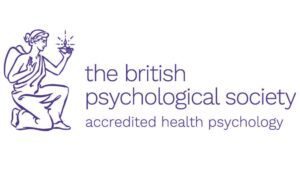Health Psychology MSc
Health psychologists play an important role in improving wellbeing, promoting recovery from illness and disability, and helping people build healthier lifestyles. Join us to start the first stage of your postgraduate training, gaining specialist knowledge and skills in health psychology.
Overview
| Course length: | 1 year full-time 2 years part-time |
|---|---|
| Start dates: | September 2024 September 2025 |
| Location: | Edge Hill University |
| Subject(s): | Psychology |
| Faculty: | Arts and Sciences |
| Department: | Psychology |

Advance your knowledge. Unravel different theories. Apply what you learn to all aspects of health, illness and disability. Everything we teach on our MSc Health Psychology will equip you with the practical skills and specialist knowledge you need for your future.
Our MSc Health Psychology degree is accredited as stage 1 training by the British Psychological Society (BPS), the first stage to becoming a qualified health psychologist.
We’ve designed this programme for psychology graduates who have Graduate Basis for Chartered Membership with the British Psychological Society (BPS). You’ll develop the interpersonal, evaluative, technical and creative skills to assess health issues and design effective interventions.
Learning flexibly in person and online, we’ll help you sharpen your analytical, problem-solving and advanced research skills to prepare you for postgraduate employment or further study in health psychology and beyond.
To help you think about your future, we’ll introduce you to a range of career pathways and specialist roles that you could explore.

Course features
-
International students can apply
-
Work placement opportunity
-
Professional accreditation
What you'll study
During MSc Health Psychology, we’ll immerse you in all aspects of health psychology theory and practice. You’ll explore key issues and interventions designed to encourage changes to health-related behaviour, boost wellbeing and promote recovery.
The key to improving health is understanding the experience of being ill and the role psychology can play in care. Untangle the complex relationship between mind and body by examining medically unexplained illnesses and conditions. Examine the role of psychological factors in disease.
You’ll look at the role of environmental, social, cultural and economic factors, as well as exploring other reasons why people engage in health-damaging behaviours. Most importantly, we’ll discuss how we can encourage them to make healthier lifestyle choices.
We’ll introduce you to a range of research methods – multivariate analysis of variance (MANOVA), analysis of covariance (ANCOVA), regression, mediation moderation, and more. You’ll also gain experience using a range of qualitative research approaches too. Developing expertise in these areas will prepare you for your dissertation and serve you throughout your career.
Social responsibility is a critical part of the course. While carrying out research, you’ll make sure your findings are presented in an inclusive format. We’ll also discuss the style of language used to discuss health psychology.
How you'll study
You will be taught through a combination of lectures, workshops and online activities.
How you'll be assessed
You will be assessed through a combination of written assessments, oral presentation, project work and a dissertation.
Who will be teaching you
Psychology is a rapidly growing department at Edge Hill University with academic experts who are research active. On our MSc Health Psychology course, you will be taught by leading experts in health, illness and behavioural change. In particular, this is in the areas of thinking and reasoning, work psychology, psychological aspects of substance abuse, counselling, close relationships, and the functioning of working memory.
Department of Psychology staff have been published in major national and international peer reviewed journals such as:
- International Journal of Environmental Research & Public Health
- Health Education Journal
- British Journal of Oral and Maxillofacial Surgery
- Obesity Reviews
- Appetite
- Journal of Basic and Clinical Health Sciences
- BMC Palliative Care
- Psycho-Oncology
- Journal of Cancer Survivorship
- Journal of Contextual Behavioural Science
- British Journal of Health Psychology
- Health Psychology Open
- Journal of Genetic Counselling
- Lancet Psychiatry
The Department of Psychology operates a research internship scheme where you may have the opportunity to volunteer to assist with staff research across a range of exciting projects. Previous projects have focused on subjects including eye movements and memory, alcohol and inhibition, autistic traits, attentional bias to pictures and words, personality and offending behaviour, behaviour change and food awareness, multiple perspective taking, the neural underpinnings of action simulation, and the question of whether emojis reveal true emotions.
Entry criteria
Entry requirements
You should have a degree equivalent to UK first-class or upper second-class honours (2:1 or above) in psychology, as well as the Graduate Basis for Chartered Membership (GBC) with the British Psychological Society.
You will also need to demonstrate attaining a minimum of upper second-class honours (2:1 or above) in your dissertation module (or equivalent final-year research project), evidencing this by supplying a detailed copy of your degree transcript (or equivalent).
An interview may form part of the selection process.
English language requirements
International students require IELTS 6.5, with a score no lower than 6.0 in each individual component, or an equivalent English language qualification.
If your current level of English is half a band, one band, or one-and-a-half bands lower, either overall or in one or two elements, you may want to consider our Pre-Sessional English course.
How to apply
There is an online application process for this course.
Please choose the application form for your preferred intake date and mode of study.
Please see our international student pages for further information about how to apply as a prospective international student.
Should you accept an offer of a place to study with us and formally enrol as a student, you will be subject to the provisions of the regulations, rules, codes, conditions and policies which apply to our students. These are available at www.edgehill.ac.uk/studentterms.
There’s plenty of opportunities to come take a look around campus. Attend one of our open days to see what life at Edge Hill University is all about.
Book an open day
Facilities
 The £6million Law and Psychology building provides contemporary teaching and learning facilities for students in the Department of Psychology and the School of Law, Criminology and Policing.
The £6million Law and Psychology building provides contemporary teaching and learning facilities for students in the Department of Psychology and the School of Law, Criminology and Policing.
The three-storey building includes a 250-seat lecture theatre, seminar and tutorial rooms, and social learning areas which encourage a more informal and interactive style of learning. There are also specially designed laboratory and experimental facilities for psychological research.
Where you'll study
Law and Psychology
Learning resources
Psychology resources include state-of-the-art eye trackers, transcranial direct current stimulation (tDCS) methods, and near-infrared spectroscopy (NIRS) for examining cognitive functioning and brain activity. Other specialist laboratories include a group testing laboratory, bi-directional observation rooms, a ‘bar simulation laboratory’ (for alcohol research), audio-visual suites and dedicated IT facilities equipped with subject specific software installed to support experimental work.
Finance
Tuition fees
UK Full-Time
£9,000
for the course
UK Part-Time
£50 per credit
for 180 credits
International
£16,500
for the course
EU/EEA and Swiss students who have settled or pre-settled status under the EU Settlement Scheme, as well as Irish nationals, may be eligible for the UK tuition fee rate.
Financial support
Please view the relevant Money Matters guide for comprehensive information about the financial support available to eligible UK students joining postgraduate courses at Edge Hill University.
EU/EEA and Swiss students who have settled or pre-settled status under the EU Settlement Scheme may be eligible to apply for financial support. Irish nationals can ordinarily apply to Student Universal Support Ireland (SUSI). If you are an EU student who does not have settled or pre-settled status, or are an international student from a non-EU country, please see our international student finance pages.
Your future career
Our MSc Health Psychology gives you the practical skills and technical knowledge to work in a range of sectors or continue your studies.
Your expertise will open doors to a range of different careers in academia, healthcare and public health. Look out for opportunities in a variety of medical and community care settings, charities and more.
If you want to continue studying, you might complete a PhD or doctoral-level study in health psychology or a related area. This course also boosts your prospects of securing a place on a doctorate training programme in clinical psychology.
Course changes
Every effort has been made to ensure the accuracy of this information, however our courses are subject to ongoing review and development. Changing circumstances may necessitate alteration to, or the cancellation of, courses.
Changes may be necessary to comply with the requirements of professional bodies, revisions to subject benchmarks statements, to keep courses updated and contemporary, or as a result of student feedback. We reserve the right to make variations if we consider such action to be necessary or in the best interests of students.











